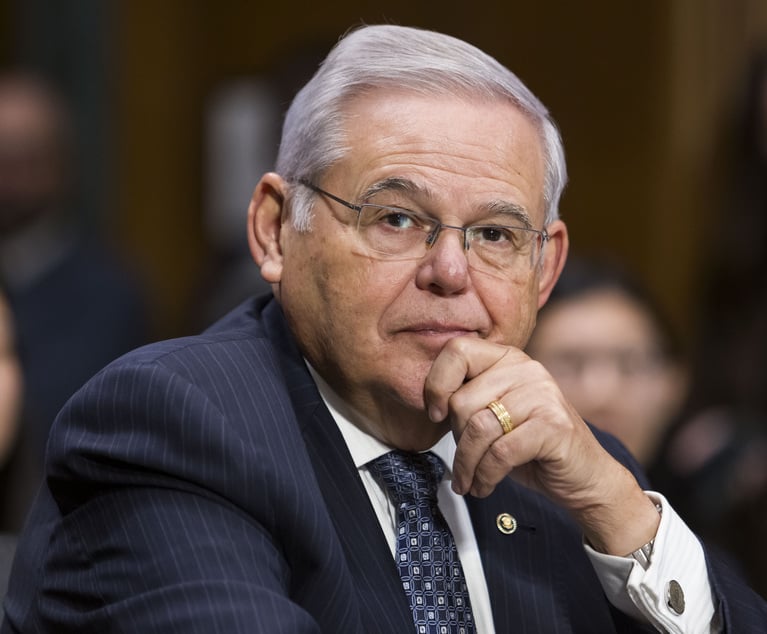The former congressman is central to Dentons’ plans to increase its LDA (Lobbying Disclosure Act) revenue and other D.C. public policy business, as well as cater to clients of the firm’s extensive network of state and local government business. Practice group leadership believes Dentons’ model of providing legal services in multiple jurisdictions is increasingly what clients also want from their lobby shops.
“We are committed to growing our public policy practice into one of the premier shops in Washington, and Joe is a natural fit to help lead the way,” Sonia Martin, CEO of Dentons US, said in a statement announcing Crowley’s arrival.
Dentons is ranked No. 4 in the 2020 Am Law Global 200, with a head count of around 12,000 lawyers and an estimated total revenue of more than $1.2 billion. Yet its lobbying business has yet to reach such heady heights.
Last year Dentons’ LDA revenue was just over $6.8 million. To make it into the Top 20 of LDA earners, lobbying firms in D.C. required revenue of at least $14.72 million. In fact, competing against specialist lobby shops, only six full-service law firms are consistently in the Top 20 in terms of LDA revenue: Akin Gump Strauss Hauer & Feld, Brownstein Hyatt Farber Schreck, Covington & Burling, Holland & Knight, K&L Gates, and Squire. Last year, Brownstein and Akin Gump both brought in $55 million from their lobbying business.
But Eric Tanenblatt, leader of Dentons’ US public policy practice and global chair of public policy and regulation, is quick to point out that LDA revenue is only a small subset of not only the lobbying business in D.C. but public policy generally.
“Our desire is for our LDA numbers in D.C. to continue to grow—and I’m confident that they will, especially as we add people like Congressman Crowley to our team. But while the federal practice is our largest, it’s just one component of what we offer,” said Tanenblatt. “We work in all 50 states, as well as globally, offering a broad range of services.”
Soon after Tanenblatt joined Dentons through the merger with McKenna Long & Aldridge, he launched the firm’s Dentons 50 service, which provides public policy and lobbying services at the state and local levels.
“We also have a large attorneys general practice staffed with former AGs from both sides of the aisle and a local government solutions practice that works with local governments,” he said.
And while Dentons’ so-called Golden Spike initiative has been expanding the firm’s geographic footprint in the United States for legal services, it has also been a boon for its public policy business, Tanenblatt said.
Cohen & Grigsby in Pennsylvania, Davis Brown in Iowa, Bingham Greenebaum in Indiana and Durham Jones & Pinegar in Utah all came with big state government affairs practices, he said of several of the firms that have recently joined Dentons under the initiative.
Adding it all together—along with its global offerings—Tanenblatt insists Dentons public policy offering is already “premier.”
But like all roads led to Rome in the ancient world, today everything eventually comes back to how well you can represent your clients in the nation’s capital. That’s why Tanenblatt believes Dentons needs to be competitive in the D.C. market.
“If we have a client at the state level, it’s likely they’ll eventually need representation in Washington,” he said, adding that the engagement model in the lobbying world is increasingly similar to how global companies are now looking at their law firms. “Clients want to work with a smaller number of law firms that can assist them in multiple markets. We’re building our public policy practice in a similar fashion.”
Nationally, Dentons’ public policy shop comprises the talent of around “50 to 60” practitioners, of which “half” are in D.C., said Tanenblatt, with many people splitting their time between local, state and federal work.
“I’m a great example. About 30% of my clients are federal, 30% are state and 30% are multi-state,” he said.
In terms of target industries for client growth, Tanenblatt said the firm already does a lot of work in capital markets and financial services and is looking to grow further in the energy sector, “venture tech and chip technology,” space, transportation and autonomous vehicles, to name but a few sectors.
“The sectors where we see the greatest growth would not surprise you. They’re the sectors where you see the greatest growth globally,” he said.
Tanenblatt said Crowley, as well as running his own book of business, will be a “key driver” for further growth of its D.C. shop.
Crowley—a Democrat—joins in a year when many pundits are predicting the Democrats will lose their majority to Republicans. But Tanenblatt is unconcerned with such predictions.
“I’ve been doing this for 20 years and am a lifelong Republican. I started my career working for President George HW Bush in the late 80s … I’ve led the practice group through Democratic presidents, Democratic Congresses, Democratic Senates, and so on,” he said. “In terms of leadership, it’s all about your experience and your reputation … We tend not to have people on the extreme. We’ve always surrounded ourselves with people that are able to work both sides of the aisle on behalf of our clients.”
Crowley represented New York’s 14th District for 20 years until losing a primary to Alexandria Ocasio-Cortez. He was an elected member of the House Democratic leadership for six years, including time as chairman of the Democratic Caucus—the fourth-highest ranking position among House Democrats.
Crowley was also chief deputy whip and sat on the Democratic Steering and Policy Committee. He variously served on the House Ways and Means Committee, the House Financial Services Committee, and the Foreign Affairs Committee. Before being elected to Congress, Crowley served in the New York State Assembly.
He is leaving a firm with a total lobby shop head count of 70, which brought in as much last quarter ($6.8 million) as Dentons did all year and totaling 2021 LDA revenues of $24.29 million. Those figures place Squire eighth on the LDA revenue leaderboard. According to lobbying watchdog OpenSecrets, Squire had a federal lobbying client roster of around 144 clients in 2021, while Dentons serviced about 60 in 2021.
Crowley said he was attracted to Dentons because it is “unrivaled in the legal field” and the opportunity to help build the D.C. practice.
“The leadership opportunity was something that I found very attractive. Raising Dentons’ public policy practice is a challenge I’m ready to take on,” he said.
A spokesperson for Squire said the firm wishes him “great success in his future endeavors.”


 Joe Crowley. Photo: Andrew Harrer/Bloomberg
Joe Crowley. Photo: Andrew Harrer/Bloomberg




